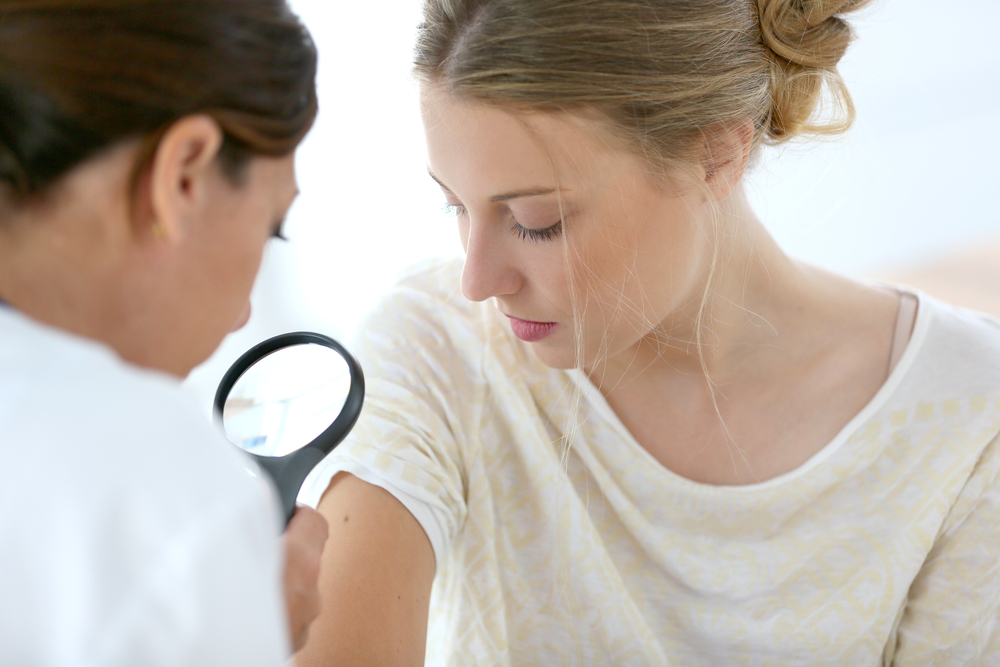Melanoma and Aging

Age is an inevitability in life. We try to do what we can to minimize its effects, but it keeps coming no matter what we do and we learn to accept that fact. Age alone wouldn’t be so bad really. After all, it simply counts how long we’ve been around. The problem is that it brings with it countless issues as systems in our bodies begin to have trouble taking care of themselves and slowly degrade. This leaves us more susceptible to problems as our bodies lose their resistances to things. Melanoma is particularly vicious in this way. As the most virulent form of skin cancer, it requires proper care to minimize its appearance and only becomes more and more prevalent as we age thanks to changes in our skin. Let’s take a closer look at the problem to understand it a little better. With a better understanding of the problem, we can more easily understand the ways to work against it.
Decaying Defenses
Your skin loses many of its defenses as you age. One of the big ways this happens is the gradual reduction in collagen. This primary structural protein is responsible for many aspects of your skin that you enjoy when you’re younger. It provides thickness and firmness at the same time that the ease with which your skin replaces it then keeps your skin smooth. There’s no denying how beneficial it is to your skin’s health. Unfortunately, decreasing levels as you age lead to thinner skin that is less able to absorb damage before it becomes permanent or twists the blueprints of your cells. That’s a big problem. Compounding the matter is the fact that the skin overall dries out as we age as well as less collagen means it is harder for your body to seal in moisture. This also causes a higher susceptibility to damage. It is little wonder that melanoma tends to turn up as readily as it does in the older parts of a population.
A Hearty Problem
Melanoma is one of the most virulent forms of skin cancer. Once it settles in, it becomes hard to combat and the spread is usually fairly quick by comparison to other strains. That’s why early detection is so important. Prevention is key, but failing that the goal is to stop progression as much as possible until the cancer can be removed. Researchers have recently pinned down that an anti-diabetic drug appears to active genes that actually work to inhibit the profession of melanoma in some cases. This offers an interesting way to potentially use the body itself to work against the progression of the disease. The particular gene affected appears to work against some of the signs of aging to achieve this effect. Unfortunately, the effect does not appear to be much outside of blocking melanoma progression at this point and there are some things about the study that we need to address as well.
Mousy Models
What many people are missing is that the study we’ve brought up was done using a mouse model. This is the basis for a lot of science, but it is not a promise of effectiveness when it comes to humans. Currently, the research shows that the gene expression caused by the drug works to extend the overall lives and reduce progression of melanoma in a single model. This isn’t necessarily the best position from which to claim that there is officially a new treatment for melanoma. However, the researchers are optimistic as it provides a glimpse into potential alternate views on treatment. It offers a clear show that older patients might need a variable therapy to provide them with the most effective means of fighting melanoma in the future. The research will need to be replicated by others before there are likely to be human trials, but if the effect holds up it may eventually find its way into therapeutic practices.
There are few people in the world who would not be grateful to wake up one day to find out that science had discovered a way to stop a form of cancer. Despite the promise of the research we’ve discussed, we have yet to have a way to fully get around the threat that melanoma represents to our overall health as we age. Our best option is to take preventive measures and remember to regularly wear sunscreen. This will go a long way towards helping minimize our chances.

